Between 13th and 17th, February 2023, the UNESCO Chair on Ecohydrology and Transboundary Water Management of Sokoine University of Agriculture (SUA) organized the 4th International Training on Ecohydrology in Tanzania. The one week training was conducted at National Carbon Monitoring Centre (NCMC), Sokoine University of Agriculture, Morogoro Tanzania
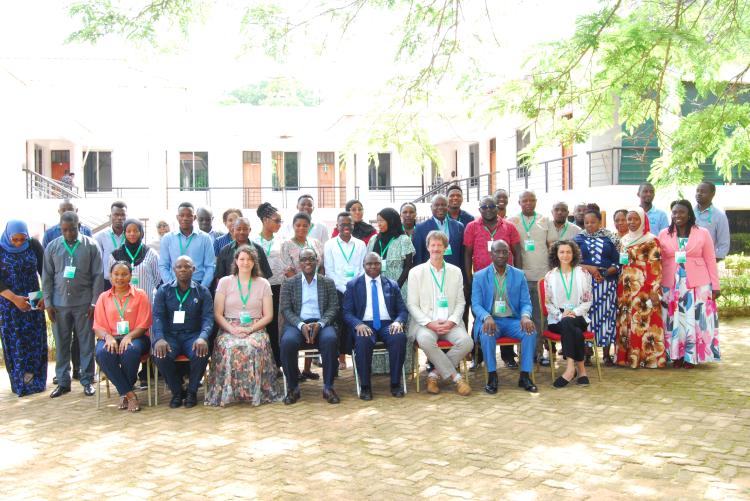
Group photo of trainees with the Guest of Honor, Prof. S. Kabote (Acting Deputy Vice Chancellor – ARC)
The main focus of the training was to impart knowledge on the practical application of nature-based solutions nature-based solutions for water management and environmental sustainability as a whole.
The training comprised of:
1. Coastal Wetland Ecosystems of Tanzania: Potential, Threats and Management Challenges
2. Community Engagement in Heritage Resources Management
3. Potentials for Ecohydrology in Freshwater and Watershed Management
4. Application of Biotechnology and Ecohydrology for Water Resources Sustainability
5. Management of Conservation Areas
6. Urban-Rural Ecohydrology and Pluvial Flooding Modeling Using GIS
7. Biodiversity Monitoring Technologies
8. Practical Application of Strategic Environmental Assessment (SEA) and Environmental Impact
Assessment (EIA)
9. Introduction to French Language for Beginners
10. Field Excursion at Mindu Water Dam
Introduction
For quite some time, majority of conservation organizations have been applying conventional approaches in solving environment problems including land and natural ecosystems degradation; loss of biodiversity, watersheds and river basin abuse; water eutrophication and wetland alteration, to name just a few. The use of nature-based solutions (ecological approaches) is crucial for maintaining the ecological functions of natural ecosystems to provide ecosystem services sustainably, water management and environmental sustainability.
Aim of the training
The training aimed at equipping trainees with applied Ecohydrology, Biotechnology and Environmental assessment and Watershed management knowledge. Additionally, trainees were imparted with skills on human-nature relations and how to deal practically with environmental challenges for ecological sustainability and societal needs.
Participants comprised of students from Sokoine University of Agriculture (SUA), researchers and conservation experts from Lake Victoria Basin Water Board (LVBWB), Grumeti Fund, World Wildlife Fund for Nature Conservation (WWF), Pangani Basin Water Board (PBWB), Local Non-governmental Organization (NGO’s) Paulsam Geo Engineering Ltd, MTL Consulting Company, Individuals, to name a few. On the other hand facilitators came from Sokoine University of Agriculture (SUA -Tanzania), University of Carinthia (CAUS-Austria), Tanzania Forest Research Institute (TAFORI - Tanzania), University of Lyon (INRAE–France), Tanzania Wildlife Authority (TAWA -Tanzania) and freelance researchers.
Rationale
Natural resources and environmental challenges calls for immediate solutions for a better future which has been highlighted in the Sustainable Development Goals of the 2030 Agenda. Ecohydrology is an interdisciplinary scientific field dealing with hydrology and ecological systems. This science seeks to solve water challenges while considering the distribution, structure, and function of ecosystems and with the effects of biotic processes on the hydrological cycle.
Highlights of the training sessions
The training started by UNESCO Chair holder giving some remarks on the historical background of the Chair, achievements, constraints and way forward

From right to left: Dr. Makarius C.S. Lalika (Chair holder), The Guest of Honor (Prof. Samuel Kabote-Acting DVC-ARC), Dr. Emmanuel Ndetto (Head of Department-Geography and Environmental Studies), Dr. Pascal Breil (University of Lyon – France) and Ms. Elisabeth Wielegele (University of Carinthia-Austria).
Before welcoming the Guest of Honor for official opening of the training, Dr. Ndettothe Head of Department of Geography and Environmental Studies delivered an overview of the department, College of Natural and Applied Sciences where the UNESCO Chair is hosted
 |
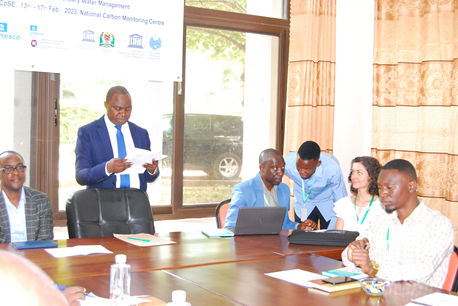 |
The Head of Department Dr. Emmanuel Ndetto giving an overview of the Department of Geography and Environmental Studies before official opening of the event. Guest of Honor (Prof. Samuel Kabote-Acting DVC-ARC) giving welcoming remarks during the official opening of the Ecohydrology training.
The Assistant Chairholder of the UNESCO Chair on Ecohydrology and Transboundary Water Management of Sokoine University of Agriculture (SUA) (Ms. Clara Mwasota) highlighted on how the UNESCO Chair has been collaborating with various stakeholders in advocating for nature-based solutions and Biotechnology for ecosystem services and environmental sustainability.
 |
 |
Assistant Chairholder Ms. Clara Mwasota highlighting some key issues during the training
Dr. Emmanuel Japhet (TAFORI) and Vanessa (University of Carinthia) delivered lecture on Coastal Wetland Ecosystems of Tanzania and the Management of Conservation Areas respectively
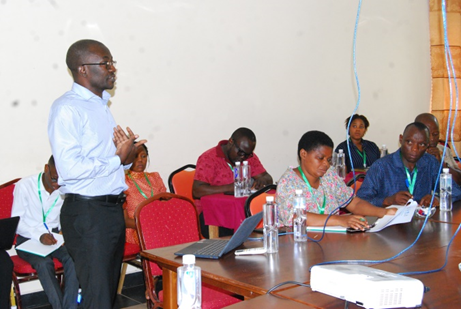 |
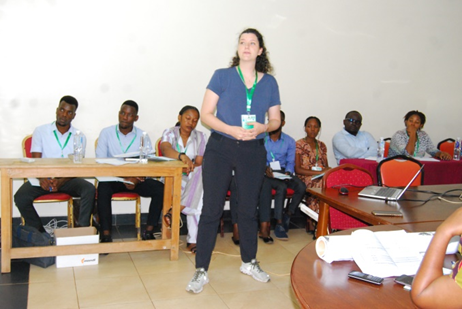 |
Ongoing session on Coastal Wetland Ecosystems and the Management of Conservation Areas
Ms. Vanessa Berger and Dr. Pascal Breil gave their presentations on Biodiversity Monitoring Technologies and Urban-rural Ecohydrology and Pluvial Flooding Modeling Using GIS respectively
 |
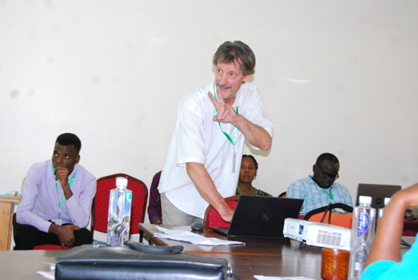 |
Pretentions on biodiversity monitoring technologies and urban-rural Ecohydrology and pluvial flooding modeling using GIS
Mr. Leonard Mayeta presenting on community engagement in heritage resources management where as Dr. Enock Chambile highlighted on the practical application of Strategic Environmental Management (SEA) and Environmental Impact Assessment (EIA)
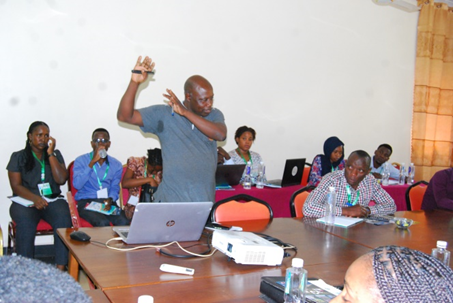 |
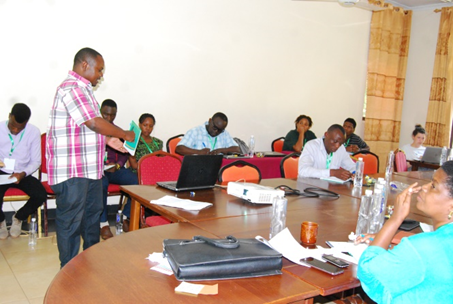 |
Presentation on community engagement in heritage resources management, SEA and EIA
The event involved also practical sessions on biodiversity monitoring technologies where trainees presented what they did during group work
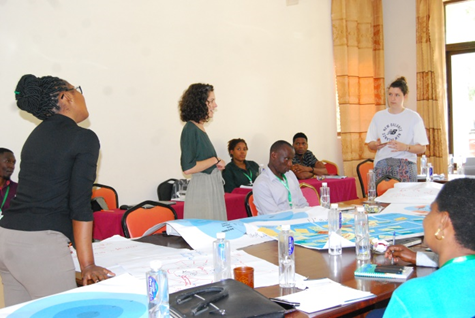 |
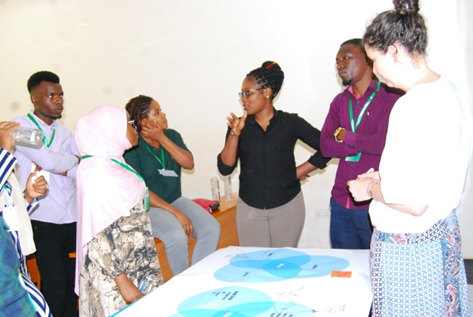 |
Practical sessions on biodiversity monitoring technologies
Later on trainees presented results of the group works
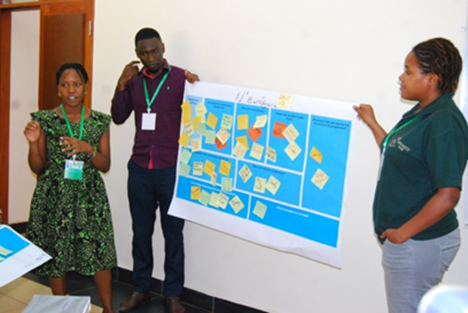 |
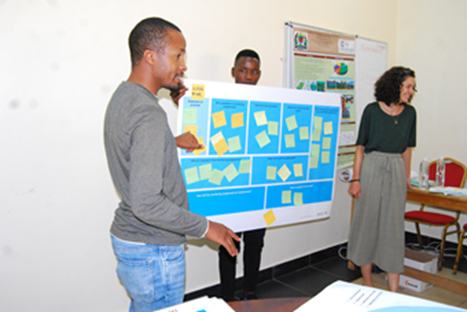 |
Group presentations
Some of the trainees had the opportunity to share their expertise, achievements, experiences and challenges on environmental conservation for a sustainable future
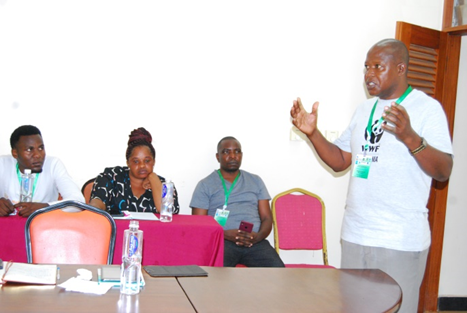 |
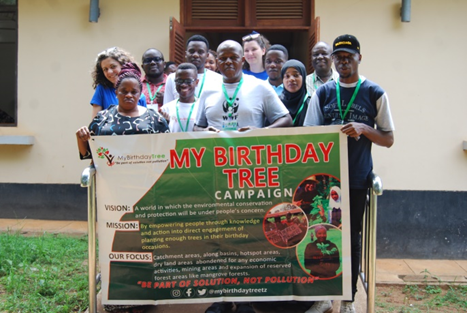 |
Trainees sharing achievements, experiences and challenges
Field excursion and Mindu Dam (proposed UNESCO demosite)
As part of the training programme, trainees had a field excursion to Mindu Dam, a candidate for UNESCO demosite. Mr. Yohana Mwaigaga in charge of the Mindu Dam explained in detail the historical background and management challenges of the dam
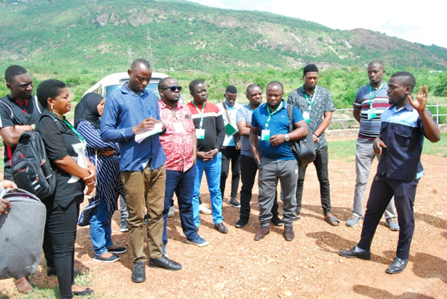 |
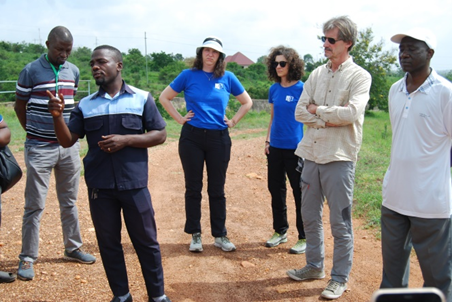 |
Trainees listening to Mr. Yohana Mwaigaga, expert in charge of Mindu Dam
In recent years, Mindu Dam has been facing significant water reduction
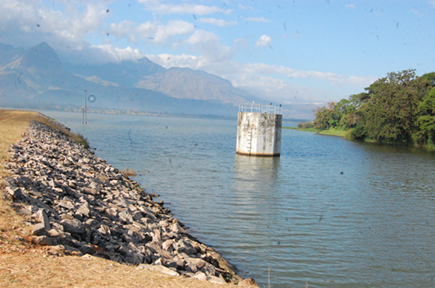 |
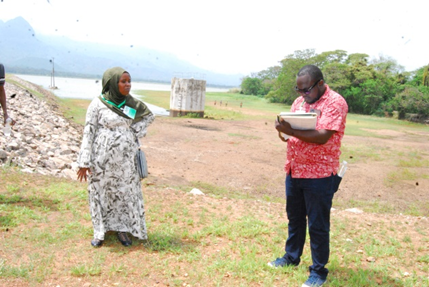 |
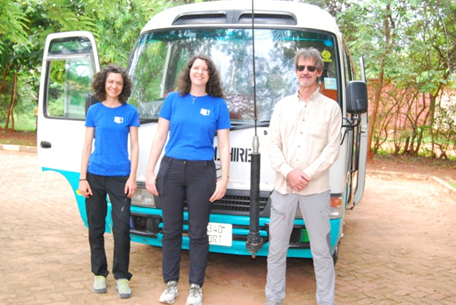 |
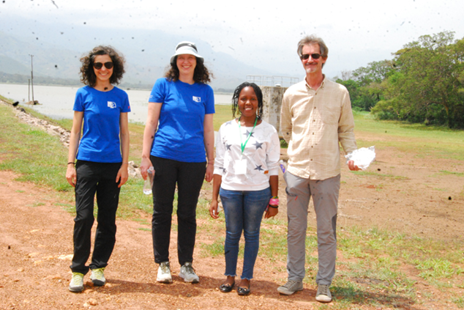 |
Water level fluctuation at Mindu Dam was observed during field excursion
Moreover, trainees had the opportunity to be empowered with French language for beginners
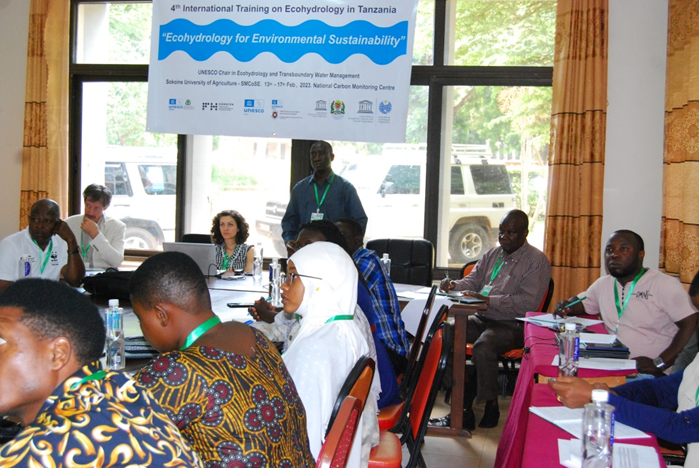
Ongoing French session for beginners during the training
Ultimately, Dr. Akwilina Mwanri (Acting Director of Postgraduate Studies, Research, Technology Transfer and Consultancy) gave the closing remarks and awarded certificates to the participants of the training
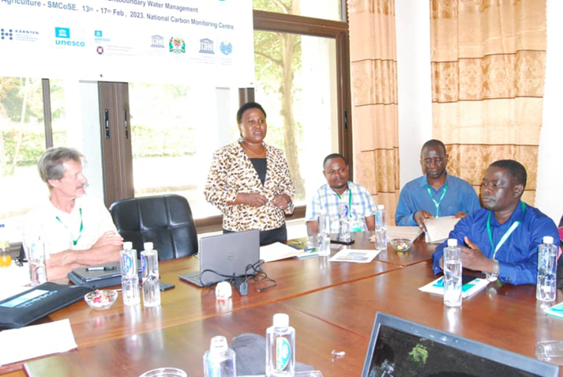
: Dr. Akwilina Mwanri (Acting Director of Postgraduate Studies, Research, Technology Transfer and Consultancy) delivering the closing speech
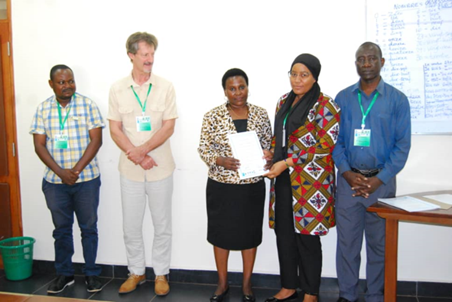 |
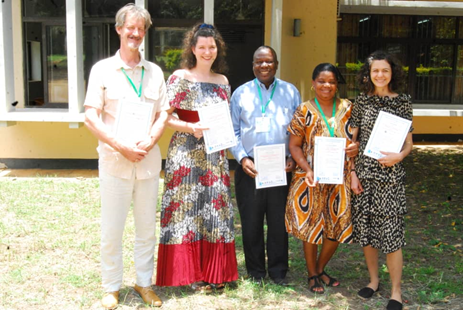 |
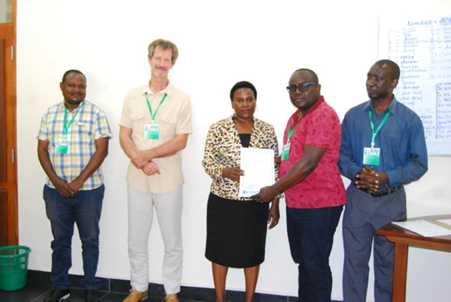 |
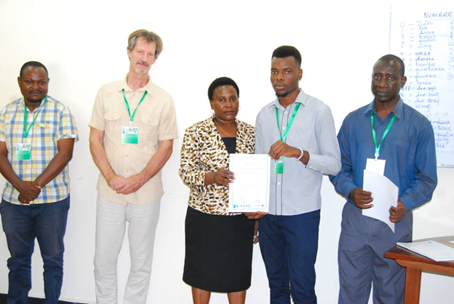 |
Trainees receiving certificate of attendance
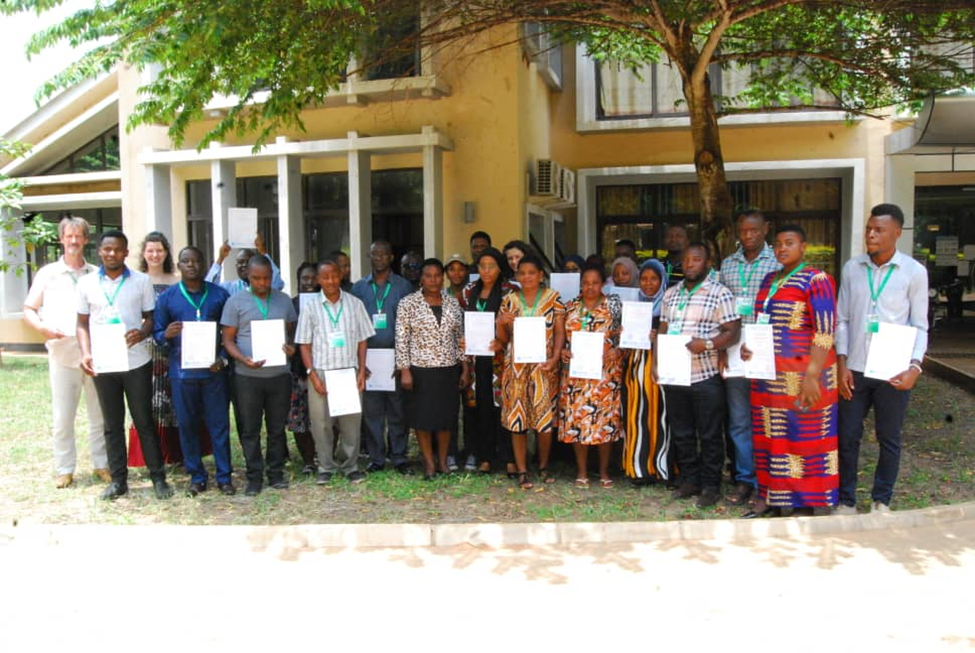 Group photo after receiving certificates.
Group photo after receiving certificates.
Future plans
Based on the success of this particular training, the UNESCO Chair is working on the next training that is scheduled to take place on November / December, 2023. Also, due to the increase of biodiversity in the Mindu Dam (including the hippo), the UNESCO Chair is planning to promote the dam as UNESCO demosite and tourist destination.
For more information and clarification contact:
Dr. Makarius C.S. Lalika and Ms. Clara Y. Mwasota; UNESCO Chair on Ecohydrology and Transboundary Water Management, Sokoine University of Agriculture, IAGRI Building, Ground Floor, Office No 17, P.O. Box 3038 Morogoro TANZANIA
lalika_2mc@sua.ac.tz; clara.mwasota@sua.ac.tz




